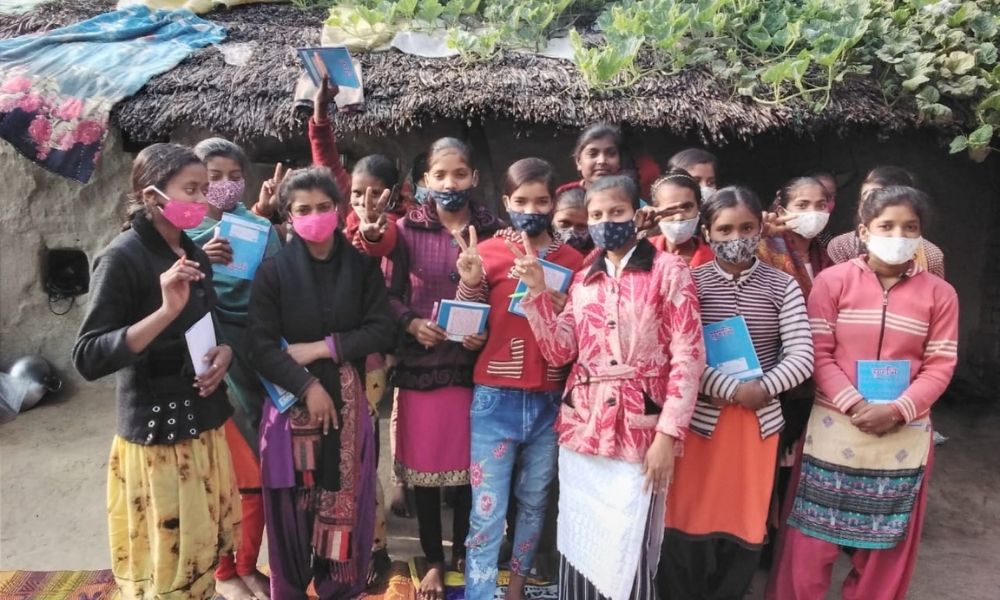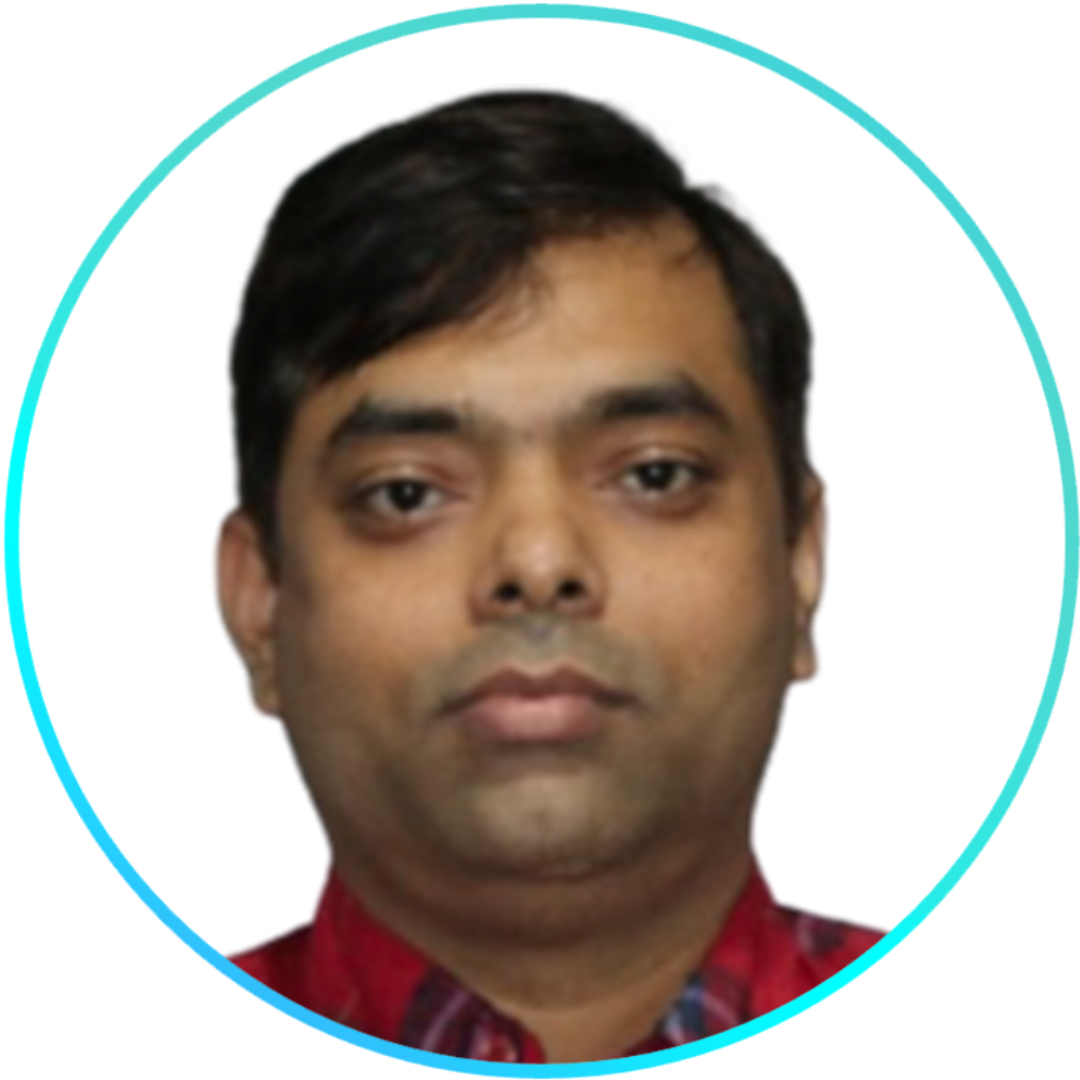
Image Credits: ComMutiny
This 20-Yr-Old Is Empowering Her Peers With Knowledge On Sexual, Reproductive Health In Uttar Pradesh's Barabanki
Writer: Rachita
Rachita has been working in the development sector for more than 5 years, she started her journey with Yeh Ek Soch Foundation as a youth volunteer and now leads youth intervention there. She has co-lead many projects in rural districts based on SRH, MHM and gender equality.
India, 19 Jun 2021 3:46 AM GMT
Creatives : Kumar Vibhanshu |
I believe that everyone has a story to tell, all you have to do is listen. I like learning new things and believe that there can never be an end to learning, and the biggest room in this world is the Room for Improvement. Seekhte Raho........
Editor : Palak Agrawal |
Palak a journalism graduate believes in simplifying the complicated and writing about the extraordinary lives of ordinary people. She calls herself a " hodophile" or in layman words- a person who loves to travel.
Guest Author : Rachita
Rachita has been working in the development sector for more than 5 years, she started her journey with Yeh Ek Soch Foundation as a youth volunteer and now leads youth intervention there. She has co-lead many projects in rural districts based on SRH, MHM and gender equality.
Menstrual Hygiene Management was a taboo conversation, but things began to eventually change as Jyoti started conducting awareness sessions, initiating a dialogue on the subject.
"I am the only woman in my community who has taken this initiative of educating the adolescents and young women on sexual education. I have not only gained more knowledge on the subject but have also begun to appreciate the importance of decision making and the significance of human rights." - Jyoti
Jyoti Vishwakarma (20) is currently pursuing B.A. Hons. from a district college. She lives with her family on the outskirts of the city in the Barabanki district of Uttar Pradesh, India. Despite being an aspirational district of Rashtriya Kishor Swasthya Karyakram (RKSK), one can rarely find any Adolescent Friendly Health Clinics (AFHC) in Barabanki.
Jyoti began her journey with Yeh Ek Soch (YES) Foundation in 2019 by leading community mobilisation for a Comprehensive Sexuality Education (CSE) program. It was a curriculum-based program that was to be run with 40 young girls and adolescents to educate them on comprehensive sexuality. Jyoti stepped up when other members were hesitant to take on such a challenging role.
"In my first session with the participants, I was told that this is something they would know when they got married. This struck me as problematic. I discussed with them about one of the most important aspects of any action – Consent, and this changed everything. Through the course of the program, they came to realize the issue with others taking their life decisions for them and expecting them to passively accept the decisions."
Jyoti's two-day residential training with YES in Lucknow was the first time that she was away from home without her family. This made her slightly unsure of herself at the onset. She hardly spoke throughout the sessions. But eventually with the unraveling of questions and after several rounds of dialogue, she finally went through with it and came out a master trainer. She said, "It was not something I had known earlier, and it takes time to unlearn what we have been taught for so long. We don't even have a washroom and here we are talking about dignity."
Unfortunately, though not unexpected, she faced a lot of backlashes with the initial sessions. A 'well-meaning' acquaintance once called her mother and expressed their concerns about the wrong track Jyoti's life was taking and how she needed to be kept in check. Her parents, especially her father, were very supportive and always stood by her. To such 'well-wishers', her father would explain the importance of people knowing about their rights as this would only help them in their life.
With the continuous mentoring and workshops conducted by YES in association with ComMutiny and vartaLeap (collectives working towards mainstreaming youth-centric development), Jyoti learned a lot. One workshop taught her how to make sanitary napkins at home, a skill that she shared with other girls in her community.
Like many other rural areas, her community also has myths and stereotypes associated with Menstrual Health and a dearth of sanitary products. Menstrual Hygiene Management was a taboo conversation, but things began to eventually change as Jyoti conducted her sessions. Girls began to demand sanitary napkins, wanted more discussions on menstruation, engaged their mothers to create more awareness, and were finally able to break the myths, starting at their own homes. With her guidance, 20 girls in the community switched to cotton sanitary napkins having learned the right way of using them.
Even when COVID-19 hit their community, Jyoti kept educating the cohort and other community members on sensitive issues like Gender-Based Violence, Consent, Healthy and Unhealthy Relationships and Sexually Transmitted Infections/ Reproductive Tract Infections (STI/RTI).
She recently completed her curriculum and wishes to take more roles in spreading awareness around Sexual and Reproductive Health and Rights. She now wants to focus on strengthening the system around RKSK and train more young people to hold the duty bearers accountable and responsible for providing sanitary products and other services.
"I want more and more boys and girls to know about their body and their rights so that they can overcome any issues related to this in the future. I want to engage more young people in campaigns to spread awareness among boys and girls. And yes, I also want to construct a washroom, the need for which I realized only when I went on this journey." – Jyoti Vishwakarma
 All section
All section
















